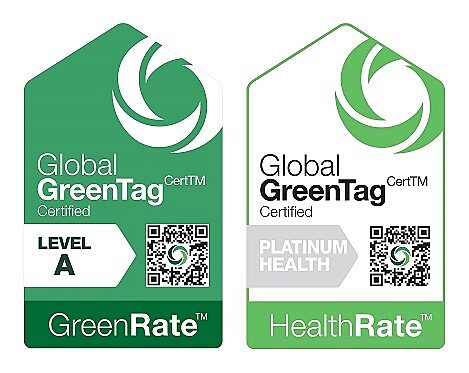Sustainability
Sustainability
Building a Better Future for All™
Our purpose has become our guiding light, defining why we do what we do.
We are embracing and integrating our bold sustainability goals into our business operations, governance structure and company culture.
Sustainability is a never-ending journey for us. So, we continue to identify and develop solutions that do right by our planet, our people, and the communities where we operate.
Building Resilience
At James Hardie, we pride ourselves on providing products that help craft more resilient, durable homes and buildings. Our commitment starts with our people, who are putting sustainability into action. Their relentless pursuit of innovation is helping to develop technology that lessens the impact of our products, reduces waste from our operations and recycles water used in our plants.
At the same time, our people work hard to strengthen our supply chain, promote safety and contribute to our communities. From our front-line employees to the homeowners who enjoy our beautiful and durable products, sustainability and resilience are key components to fulfilling our purpose of Building a Better Future for All™.
2025 Sustainability Report
To help us track and assess our progress, we adopted new, more ambitious goals in FY23. We continued to make progress in FY25 towards our global goals because each region prioritized their interim targets. Other drivers of progress included internal projects such as our Hardie Manufacturing Operating System (HMOS) initiatives. We are building for tomorrow with durability, resilience and sustainability.
Our fifth annual Sustainability Report provides an update on our programs and progress from the last fiscal year.
The voices of our team members, from front line employees to leadership help tell the story of how we are living our purpose - Building a Better Future for All™.
Global GreenTag™ Certification
Global GreenTag™ is one of the world's most robust, trusted and widely recognised ecolabels. They independently assure that every product is fitness tested and certified using the world's best scientific methods.
GreenRate™
We have achieved GreenRate™ Level A certification for our fibre cement products, please click on the links below to view our GreenRate™ certificates:
- Certificate for Linea™ Weatherboard, Oblique™ Weatherboard, Stria™ Cladding, Axon™ Panel, Secura™ Interior Flooring, Hardie™ CLD™ Structural Battens and Hardie™ Axent™ Trim
- Certificate for RAB™ Board and HomeRAB™ Pre-Cladding
- Certificate for ExoTec™ Facade Panel, Hardie™ Plank Weatherboard, Hardie™ Flex Sheet
- Certificate for Hardie™ Groove Lining and Villaboard™ Lining
Product Health Declaration™ PHD
The Global GreenTag™ Product Health Declaration™ PHD is the first of its kind in the world – a rating tool recognised and compliant Material Health transparency tool that recognises progressive manufacturers who fully disclose the ingredients of their products and then goes on to rate the healthiness of the product in use.
We have achieved Platinum Health for the following products, please click on the links to view the certificates:
- Certificate for Linea™ Weatherboard, Oblique™ Weatherboard, Stria™ Cladding, Axon™ Panel, Secura™ Interior Flooring, Hardie™ CLD™ Structural Battens and Hardie™ Axent™ Trim
- Certificate for RAB™ Board and HomeRAB™ Pre-Cladding
- Certificate for ExoTec™ Facade Panel, Hardie™ Plank Weatherboard, Hardie™ Flex Sheet
- Certificate for Hardie™ Groove Lining and Villaboard™ Lining
James Hardie New Zealand EPD
An Environmental Product Declaration (EPD) is an independently verified and registered document that communicates transparent and comparable data and other relevant environmental information about the life-cycle environmental impact of our products
Key features of our EPD include:
- 97% of our product volume is covered
- It covers the full product lifecycle from cradle to grave for a complete picture
- It uses material and manufacturing inputs from the 2021 calendar year
- Re-carbonation - this is a natural process in cement-based products in which cement reacts with the air and reabsorbs carbon dioxide (CO2) during the use phase of the product.
- The EPD complies with ISO 14025 and EN 15804:2012+A2:2019
VOC Emission Test Certificates

The Design Book
The Hardie™ Cladding Collection has a wide variety of products to select from, creating design versatility, in which It’s Possible™ to Make Modern™ like never before. It’s a movement that’s reshaping perceptions and changing the way New Zealand builds. Whether you are planning a renovation, new build, or extension, this forecast will be an invaluable tool on your journey. Welcome to the James Hardie Design Handbook. It's time to Build Your Modern Life.
